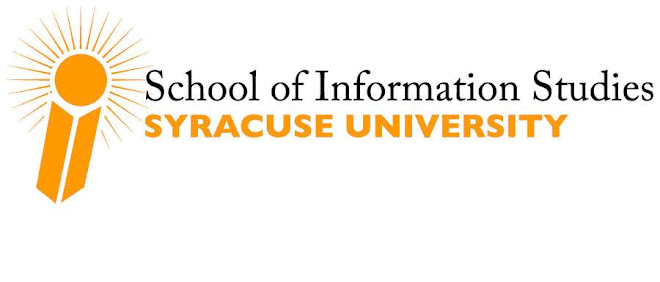
What are iSchools doing to help prepare for and respond to man made disasters such as a terrorist attack? That was the topic of a panel Tuesday morning that featured Syracuse iSchool Dean Elizabeth D. Liddy.
The panelists outlined the areas in which they felt iSchools could contribute to dealing with these major catastrophes: modeling scenarios, prediction, mitigation, response, real-time synthesis, and human performance and training.
Pittsburgh iSchool Dean Ron Larsen described a project he worked on for the Department of Defense that sought to detect underground nuclear facilities. His role was to collect what he called second-order information—not using ground penetration radar, but rather tracking heavy equipment shipments or materials delivery. He stressed the iSchool’s holistic approach to problems—combining technical information with social and psychological information.
Liddy focused much of her comments on the role iSchools play in predicting and preventing these catastrophes by analyzing communications, such as e-mails, text messaging, and blogs through natural language processing.
“In these man-made extreme event scenarios, the police, defense, and intelligence communities frequently do have some means to anticipate such events, and thereby make them more predictable and therefore potentially more preventable,” Liddy said.
She talked about how researchers can develop and apply predictable models to this data to weed through the massive amounts of information to find the “needle in the haystack,” or expressions about a planned attack.
Natural language processing has gotten good at mining words with their denotative meanings, and now researchers are focusing on developing automated process to examine the connotative meaning of words and emotive words, Liddy said.
To do this, Liddy said researchers have to find public data from which they can study and build these models and technologies. The data from such cases as Enron are being used, as are data from open source developers who are building archives of e-mail exchanges, papers, and other communications relating to the development of that field.
Other panelists talked about the role psychology and international context can play in these extreme events. Panelists agreed that iSchools are the optimal source of research and solutions in these extreme events because iSchools excel in human-driven technology, information that needs to be processed by both humans and machines, and evaluating the usefulness/effectiveness of technology for humans.
The panelists outlined the areas in which they felt iSchools could contribute to dealing with these major catastrophes: modeling scenarios, prediction, mitigation, response, real-time synthesis, and human performance and training.
Pittsburgh iSchool Dean Ron Larsen described a project he worked on for the Department of Defense that sought to detect underground nuclear facilities. His role was to collect what he called second-order information—not using ground penetration radar, but rather tracking heavy equipment shipments or materials delivery. He stressed the iSchool’s holistic approach to problems—combining technical information with social and psychological information.
Liddy focused much of her comments on the role iSchools play in predicting and preventing these catastrophes by analyzing communications, such as e-mails, text messaging, and blogs through natural language processing.
“In these man-made extreme event scenarios, the police, defense, and intelligence communities frequently do have some means to anticipate such events, and thereby make them more predictable and therefore potentially more preventable,” Liddy said.
She talked about how researchers can develop and apply predictable models to this data to weed through the massive amounts of information to find the “needle in the haystack,” or expressions about a planned attack.
Natural language processing has gotten good at mining words with their denotative meanings, and now researchers are focusing on developing automated process to examine the connotative meaning of words and emotive words, Liddy said.
To do this, Liddy said researchers have to find public data from which they can study and build these models and technologies. The data from such cases as Enron are being used, as are data from open source developers who are building archives of e-mail exchanges, papers, and other communications relating to the development of that field.
Other panelists talked about the role psychology and international context can play in these extreme events. Panelists agreed that iSchools are the optimal source of research and solutions in these extreme events because iSchools excel in human-driven technology, information that needs to be processed by both humans and machines, and evaluating the usefulness/effectiveness of technology for humans.


No comments:
Post a Comment